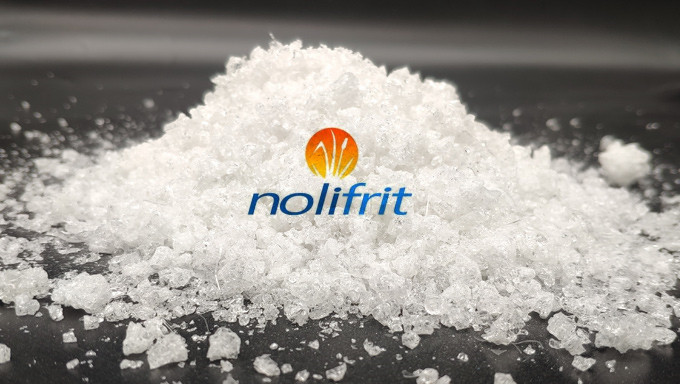How To Choose Suspending Agent For Enamel Slip
The clay used in the enamel industry is mainly kaolin, the chemical formula is AL2O3•2SiO2•2H2O, and a small amount of montmorillonite type bentonite can also be used, and its chemical formula is AL2O3•4SiO2•nH2O. Both are suspended natural minerals, and their function in the enamel slip is to prevent the precipitation of enamel particles, enhance the strength of the dry powder layer, and help attach to the metal body. The content of iron and mica in the composition of the clay should be low, and at the same time it should have a stable viscosity.
 The clay used for the enamel ground coat has better suspension properties, and the impurities that cause coloring are irrelevant. The clay used for enamel cover coat must have good suspending properties and the minimum impurity content. For example, the iron oxide in the clay affects the whiteness of the titanium white enamel. If the clay contains pyrite, the ground coat layer will produce "copper head", or the top coat layer will produce pits and black spots.
The clay used for the enamel ground coat has better suspension properties, and the impurities that cause coloring are irrelevant. The clay used for enamel cover coat must have good suspending properties and the minimum impurity content. For example, the iron oxide in the clay affects the whiteness of the titanium white enamel. If the clay contains pyrite, the ground coat layer will produce "copper head", or the top coat layer will produce pits and black spots.
Many kinds of macromolecular organic matter can be suspended in water like clay. A small amount of these organic substances can be added to replace part of the clay in the base glaze slurry with two coatings and one firing. When there are special requirements for the strength of the powder layer, a small amount of polymer organic matter can be introduced to significantly increase the strength of the enamel powder. Ala gum, tragacanth and methyl cellulose are the most common additives in this category.
The quality of water is often ignored. In fact, water provides conditions for the hydrophilicity of clay molecules and makes the glaze slurry suspended. Water quality also has a great influence on the quality of the glaze slurry, and the soluble salt in the water will affect the rheological properties of the glaze slurry. Water often contains Ca2+, Mg2+, Cl-, HCO3-, CO32-, SO42-, these impurities have little advantages and disadvantages to the quality of enamel, such as Cl- will reduce the gloss of enamel surface; Ca2+ will oxidize titanium glaze during firing The transformation of titanium crystal form is unfavorable, especially in industrial acid-resistant glazes. In addition to causing defects on the porcelain surface, it also has a negative impact on the acid and alkali resistance of the porcelain surface; insoluble substances and microorganisms can cause a large number of bubbles and needles on the porcelain surface. Hole, industrial acid-resistant enamel is particularly sensitive and harmful. Therefore, many enamel factories in areas with poor water quality use distilled water to grind the glaze slurry.

Many kinds of macromolecular organic matter can be suspended in water like clay. A small amount of these organic substances can be added to replace part of the clay in the base glaze slurry with two coatings and one firing. When there are special requirements for the strength of the powder layer, a small amount of polymer organic matter can be introduced to significantly increase the strength of the enamel powder. Ala gum, tragacanth and methyl cellulose are the most common additives in this category.
The quality of water is often ignored. In fact, water provides conditions for the hydrophilicity of clay molecules and makes the glaze slurry suspended. Water quality also has a great influence on the quality of the glaze slurry, and the soluble salt in the water will affect the rheological properties of the glaze slurry. Water often contains Ca2+, Mg2+, Cl-, HCO3-, CO32-, SO42-, these impurities have little advantages and disadvantages to the quality of enamel, such as Cl- will reduce the gloss of enamel surface; Ca2+ will oxidize titanium glaze during firing The transformation of titanium crystal form is unfavorable, especially in industrial acid-resistant glazes. In addition to causing defects on the porcelain surface, it also has a negative impact on the acid and alkali resistance of the porcelain surface; insoluble substances and microorganisms can cause a large number of bubbles and needles on the porcelain surface. Hole, industrial acid-resistant enamel is particularly sensitive and harmful. Therefore, many enamel factories in areas with poor water quality use distilled water to grind the glaze slurry.